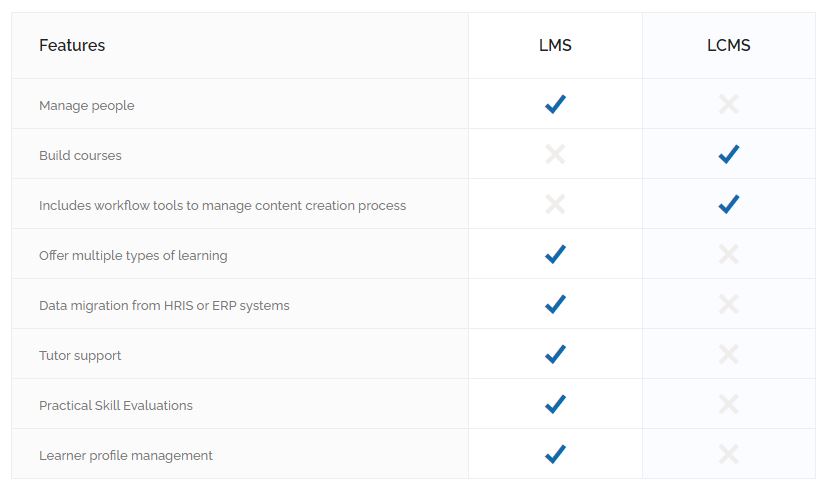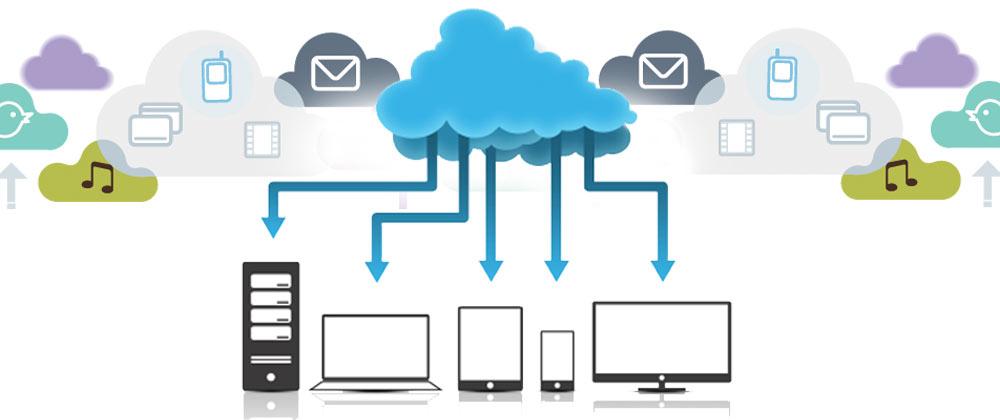LMS vs LCMS: What is the Difference?
Sarah Flesher
When it comes to delivering, managing and tracking eLearning, two similar sounding software systems are often discussed: LMS (Learning Management System) and LCMS (Learning Content Management System). You will encounter both these terms as you search for the appropriate eLearning tool for your organization. Read on to learn more about these often complementary technologies, which, though serving similar purposes, feature some key differences.
What is an LMS?
An LMS (Learning Management System or eLearning platform) is a software application that supports learning in an organization. Learning Management Systems enables organizations to deliver all types of learning content, enroll learners, track performance, generate strong reporting on performance and provide recognition. For organizations that are legally required to provide certain types of safety or compliance training, an LMS is an essential tool, as it is a perfect way to track compliance.
LMS users
For learners, a 'one-stop-shop' for learning
For learners, the LMS is a platform that allows individuals to register or be enrolled into certain learning activities. The LMS is a single technology where courses and content are accessed, where evaluations take place, where practical skill check assessments are uploaded and where records of performance and activity are stored.
For organizations, a tool to deliver, manage and track learning
For an organization, the LMS is not only beneficial as a tool their learners can use, but it is also an effective means to upload learning, and track and generate reports using a single technology. Organizations can also use an LMS as a sales tool to sell learning content and track the revenues associated with learning. The one thing that an LMS does not support is the creation of eLearning content.
What is an LCMS?
Similar to an LMS, an LCMS (Learning Content Management System or e-learning platform) is a software application that supports learning in an organization, but is used primarily to develop and store online courseware, and create and organize new eLearning content.
Where an LMS focuses on the broader management of all types of learning, LCMSs focus on managing content creation, and while an LMS may consist of eLearning for a wide audience, an LCMS focuses on modifying single courses for individual learners.
Most importantly, a Learning Content Management System gives course authors, training administrators and subject matter experts the means to create, store, repurpose and manage eLearning content.
LCMS users
You'll recall that an LMS benefited both the individual learner and the organization. By contrast, the single largest benefactor of the LCMS is the content developer, who may create content directly within the system. Having this functionality allows developers to create personalized content for learner groups who may require unique learning items.
Using an LCMS may address some unique business challenges. However, consider that there are a number of technologies that build more high-end e-learning courses. Further, the power of instructional design and technical writing is still very important regardless if you use an LCMS or other authoring tool.
Key distinguishing factors between an LMS and an LCMS
Both LMSs and LCMSs manage learning content.
-
Where an LMS can manage all types of learning, included blended or hybrid learning, such as online courses, classroom events and webinars, an LCMS only has the ability to manage online content.
-
Where an LMS stores and delivers content through personalized learning paths, an LCMS allows developers to personalize individual learning items based on user profiles.
-
Finally, where an LMS gives administrators the ability to track and report on learning participation and progress, an LCMS provides administrators the functionality to track progress within a particular eLearning course.
Additional features are summarized in the table below:

Note: The functionalities of both Learning Management Systems and Learning Content Management Systems are often specific to the software or vendor.
Conclusion
Both Learning Management Systems and Learning Content Management Systems are effective and necessary tools for managing learning today.
An LMS is a high-level tool that can plan, deliver and manage all types of learning content within your organization, but it is not used to create content. Alternatively, the strength of an LCMS is that content developers may quickly and easily create new courseware. While an LCMS can offer some basic administrative functionality, its focus is in tracking user access to individual chunks of learning content, allowing organizations to learn how learners are accessing content.
LMS and LCMS should be soundly integrated to provide a rich experience for the learner and a complete tool for the learning administrator. As you research which tools will best meet the demands of your organization, keep the key characteristics and differences discussed here in mind, and remember that it may be best to start with finding the right LMS, and integrating it with an LCMS when the time comes.
TopicsChoose Topic
📘 Ready to Elevate Your Learning Strategy?
Explore our comprehensive library of eBooks and tools on learning resource development, competency-based learning, and LMS implementation. Transform your training programs with insights from industry experts and practical templates.
Sarah Flesher
Sarah, our President, graduated from Concordia University in Montreal with a BA and an MA in Public Policy and Public Administration and completed her doctorate in Educational Technology. Sarah brings over 15 years of operational and management experience to her role as President at Base Corp. She works collaboratively with organizations to develop strategic learning plans, determine training requirements. When she doesn't have her nose in a book you can find her at the gym, on the ice, on the ski hill, drinking wine or in a coffee shop … with her nose in a book.
